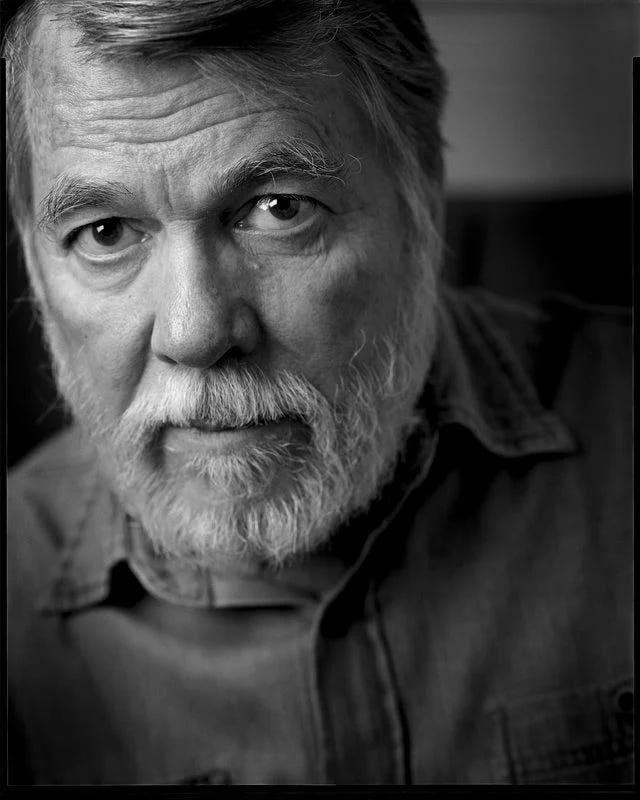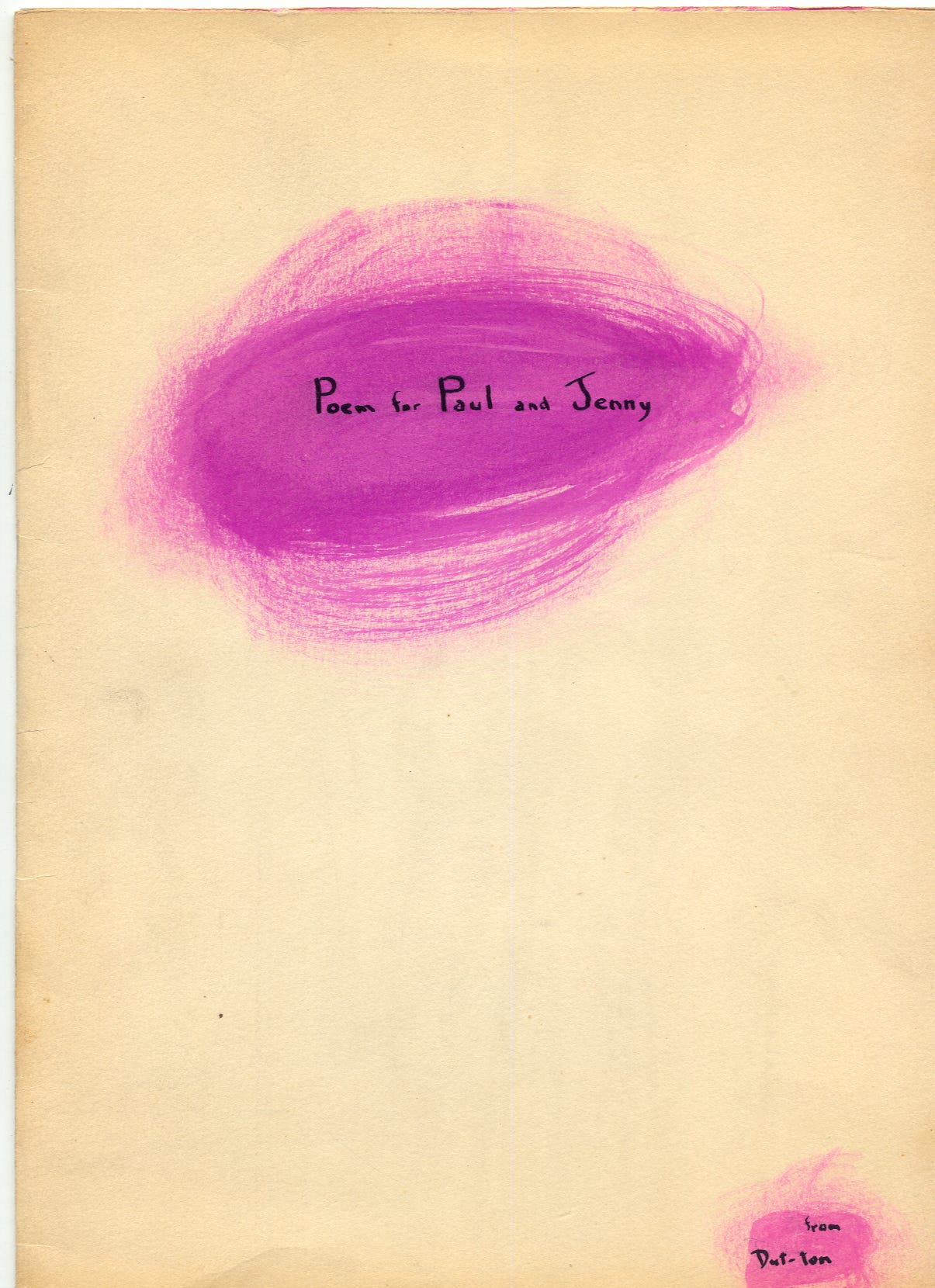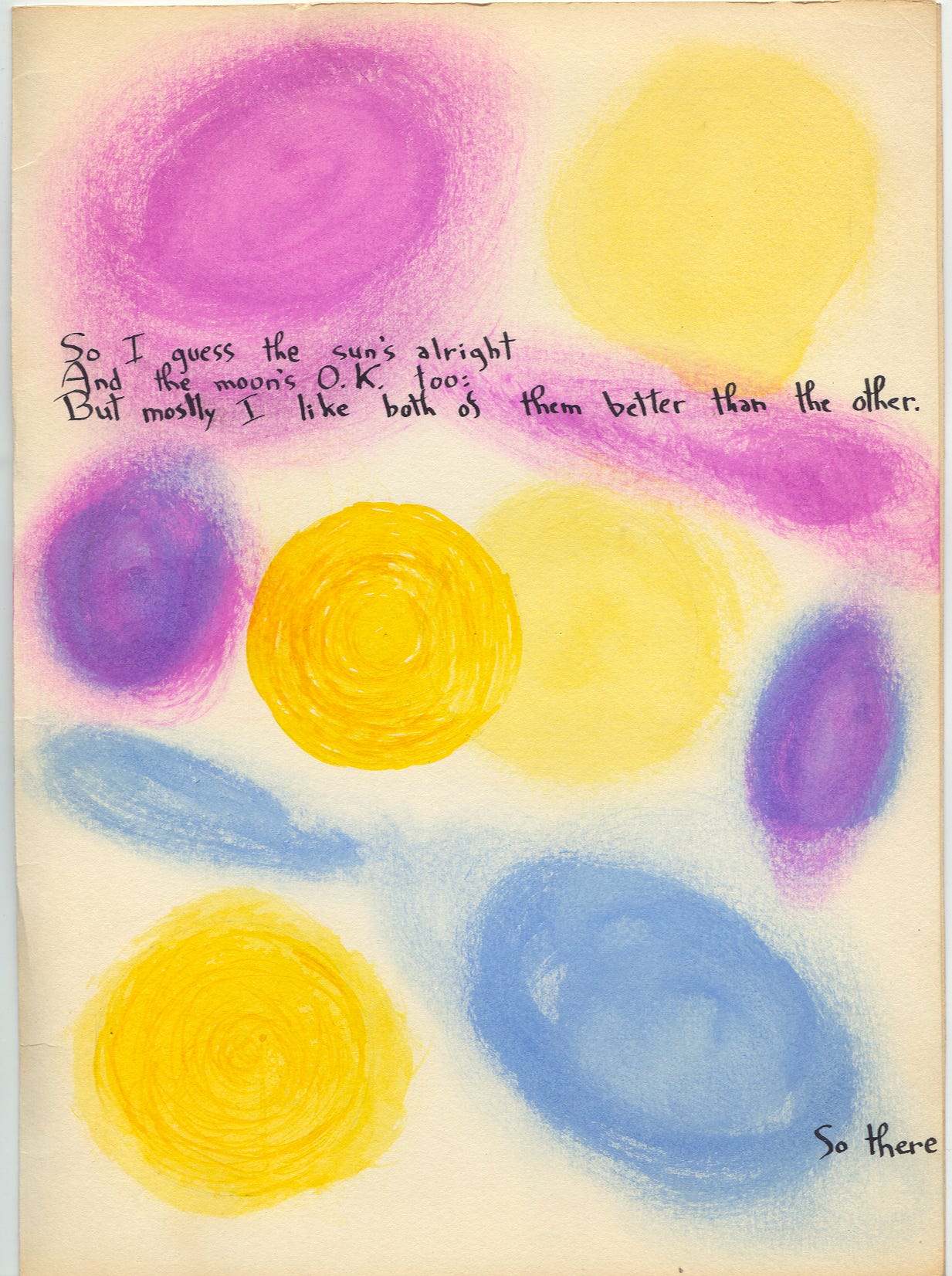Words Fail (a personal remembrance of Paul Dutton)
No One Becomes An Artist, Unless They Truly Need To
Hi Folks, I am compelled to do a bit of digging into the art side of life this time (a crucial part of the balance, which I have been failing to adequately address, in the chaos of recent lies, politics and war).
That this is prompted by sad duty reminds me yet again – we should never wait until a loss, to celebrate the special people and the unique arcs of effort which have nourished or inspired us. (Gratitude isn’t just for the personal and direct, we can also extend it and our awareness greatly, as we keep learning).
I should begin with the sad facts. Paul Dutton passed away on May 27 2025. He was a relentless and innovative writer, poet and performing member of the sound poetry group “The Four Horsemen” and later the amazing long running improvising ensemble CCMC. Along the way he was also a collaborator with and inspirer of countless artists in the Toronto scene. A unique creative force. A great light, lost.
He was also incomparably more vivid and powerful in performance, than any video has caught (couldn’t find any of my faves, but those below show his playful language-probing side, at least).
I can honestly say that I knew the esteemed, brilliant, unique and gloriously cantankerous poet Paul Dutton from the time I was zero years old (and will prove this assertion below, in his very own hand). He and my father were best friends at St Michael’s Catholic High School (back then, by far the best hockey school, and also one of the best music and arts schools in the city). Not only that, they later joined the same giant urban 1960s commune – which was full of ex-Catholics interested in modern psychology, and over time soured into the creepiest sort of mind-controlling and abusive cult.
As I’ve mentioned, I grew up in, and then learned a lot by struggling to recover from, that commune. But for all the horror stories we do hear about such strange groups (simplest takeaway there? NEUROSIS COLLECTIVIZES FAR MORE EASILY AND ROBUSTLY THAN ASPIRATION) we do not hear the other side nearly often enough. What was good about it, why join at all? Just dumb suckers? (“Trainspotting” was wonderful for first addressing that side, before addressing the ruin and depravity of heroin)
I can’t speak to other communes, but I can say that Therafields (about which several books and articles have been written, without any one of them ever getting at the core madness at the centre of it), was chock-full of absolutely incredible creatives and intellectuals. Poetry was held in special esteem, and music right after that (several of Toronto’s best jazz composers were members for years, and many plays and even a couple of full “musicals” were ultimately created by members – including a jazz musical about therapy scored by my orchestrally-minded father, and a rock version of King Lear) and visual artists were everywhere, from traditional fine and commercial illustrators to daring post-modern sculptors.
It is very hard to describe how fine a thing it is, to spend an afternoon building a lovely moonscape for your cheap plastic space toys out of Masonite and putty with a serious sculptor. Or have a friend demonstrate the gesture of a tree, before drawing the character of each leaf, also. Mind you, I didn’t think about the artist’s life at all for years, I just really enjoyed how many adults I knew, who were fantastic at (and generous with) art-play!
My father was a musical prodigy, so I grew up with classical instruments everywhere (but hands-off the harpsichord, because it took forever to tune, and our clunky kid-bashing would de-tune it again, in minutes). He was playing church organ professionally from the age of fourteen, which meant both that I always assumed I was supposed to make music, but was also faced with a highly intimidating standard and pathway! (no doubt a part of my own oddball improvising route toward rich soundmaking).
He was also one of the great natural bibliophiles of the world, so when I say I grew up in a library, I really mean it. In the front room there were dusty old vintage leather-tooled editions of Coleridge with Gustave Dore engraving plates (and those delicate cover sheets, to protect them) paperbacks of everything from Plato to Updike lined the long narrow hallways of our 1920s built walkup, and the walls were full of prints of classical paintings which he scored cheap from the out-of-date calendar bin at “Old Favourites.”
Small wonder indeed that he was best friends with a poet!
The earliest memory I have of Paul performing, was a Four Horsemen performance at a poetry festival in charming Collingwood (same trip where I discovered a Trilobite skeleton, while trying to make an arrowhead from flint I found on the beach – as depicted in my book “The Kind Of Friend You Need”).
I must have been eight or nine at the time, and I was already a bit of a skeptic – not easily sold. When the whole ensemble of “sound poets” (all friends, at varying distance) took the stage and one sneezed, I laughed. But then another sneezed, and another, and before long they were into their opening piece, which was absolutely nothing but sneezes, from all four of them, and yet had such extraordinary subtlety of timing and interplay as to approach counterpoint at times, and syncopation, many others.
I have never since forgotten that extraordinary demonstration of maximum aesthetics with minimum means – nor have I forgotten the superb lesson – great art which makes you laugh, deserves that laugh! (Think Rousseau, though as my wife and I can attest, it is amazing how few actually do get-it and then allow themselves to enjoy it)
Timelines for kid memories are a bit funny. I can say for sure that my brother and a couple of young friends briefly formed “The Four Ponymen” and rehearsed several rather overly dramatic pieces together, until we could perform them effectively. (Still remember the end of one, gleefully apocalyptic, even way back then!)
I can also say that I set up the Paul Dutton Fan Club (maybe ten or eleven, at the time). But this was strictly a zero-budget affair, so the membership cards, the carrying case and the picture of Paul with a few basic facts about him on the back (like a baseball card for a poet, almost), were all hand-drawn by me, rather crudely, on construction paper. I know there is still one copy around, (but was sadly unable to find it for this piece).
When I showed Paul, he was a bit nonplussed. Though he was always keen to (in fact, almost incapable of resisting the chance to) encourage or engage with any simpatico artistic impulse, he was not ever a self-promoter.
Intense, no question, and doing battle with great interior forces, his whole life, but still a Toronto kid.
We drifted apart after I escaped the commune (and found myself excommunicated by so many of my oldest friends, that I dared not even test some connections, lest they add still more to the heartbreak).
But we reconnected and hung out for a few years again in the nineties when Catherine and I were first married, and then again in the early Uh-Ohs.
I never once met another poet who had so many crazy war stories, that reminded me of those gathered by my pro musician friends, from time and weird experience. When I mentioned Umberto Ecco to him, he told me about a nasty run-in with low grade mobsters in Marseilles, on the way to sub for Ecco at a fine-arts festival! Such a life.
I try my best to learn everything I can from people. The things they want to teach me for sure (out of respect) but also the cautionary lessons their difficulties reveal (sometimes to everyone but them).
We all have big blind spots in our self-awareness, and when I find people with a flavour of self-struggle which feels acutely familiar, I try to open extra wide, to gain any wisdom which might present (and might also be hiding from yet troubling me).
I must first mention the way Paul was able to take his avant garde post-modern sixties sound poetry and link it to the early Toronto rap and hip-hop scene right away, effortlessly, without any pretentious art-silo nonsense at all. He knew fellow renegade poets when he saw them. Even cooler, the young toughs who were proving themselves in the scene, immediately recognized a genuine powerhouse!
But the thing I always found most personally compelling about the man is that his interior struggle was so overwhelming, it gave him a combination of special power and special weakness, which together were his lifelong self-remaking challenge. A crucible for his art and his soul, but also a fire that never once cooled and spared him.
One strange thing that having an insistent muse does, if you serve it long enough, is move a whole bunch of other concerns offstage altogether. It isn’t that you can’t worry or fuss about them also – you definitely can, but you are always haunted by the certain knowledge that no one but you will make the tenuous new thing in your head into something substantial enough, that it can enter the heads of others and keep doing interesting and useful work, long after you’re gone.
In a way, it is the knowledge of certain duty to a ghost, because until you do the work, you can’t prove to anyone else that you’re not just talking nonsense (and even then, half the time you never do get it done satisfactorily, because you can always conceive a bit beyond your established skill – or else you aren’t really trying anymore).
But the weird thing is that as insubstantial as this phantom appears to everyone else (until you are actually up on stage and sneezing) it still serves as a duty, a priority which no one else can serve.
A whole lot of people look at highly creative people (and even nutcases like me) and think they want to be like that, and do things like that. But it isn’t about anything as soft as a simple want, of that quality.
The only reason anyone begins as an artist or creator of any kind, and dies, decades later, still grappling with the most challenging and relevant problems they can find, is because they NEED to.
Please note – I do not mean to say this duty to a ghost is the only priority – duty in a life is much bigger than that. I’m only saying that unless it does feel like duty, it usually becomes a hobby, not a calling.
And then if you do manage to harness that strange beast, ride the tumult, what does it cost you?
And how many years does it take, before you can even look back and begin to see that?
And what did you leave, and who will remember your voice? The extraordinary compliment of your (never falsely given) wry impish smile of welcome to some new-coined wit. Your profound consideration of word and sound and thought, your exquisite hyper-awareness of timbre and articulation. Your voice, as virtuoso instrument. Even your fulsome cursing of the foul and frustrating.
Above all the so-sympathetic upheaval in your heart, which kept needing you to grow, to overcome its challenges, and led you to show and gift us all with myriad extraordinary ways to reach that we never could have known without your unthinkingly duty-bound and love-enraptured courage.
Thousands of us will remember you fondly and always, Paul. And me for sure forever.
Rest easy, dear soul, you have more than earned your peace.
¯\_(ツ)_/¯
Now here, in Paul’s own hand, is a little illustrated poem he made for me and my mother, (no doubt as a creative way to metabolize the weirdness of his old art buddy, suddenly becoming a family guy).
Not his most refined work (he was just a young cat then, too) but it is so of the time and sentimental, I had to offer it to you also, just for the heart-gleam contained within.
And here is a very fine interview he gave, just a couple of years ago.
Grain Magazine - Interview with Paul Dutton - 2023







